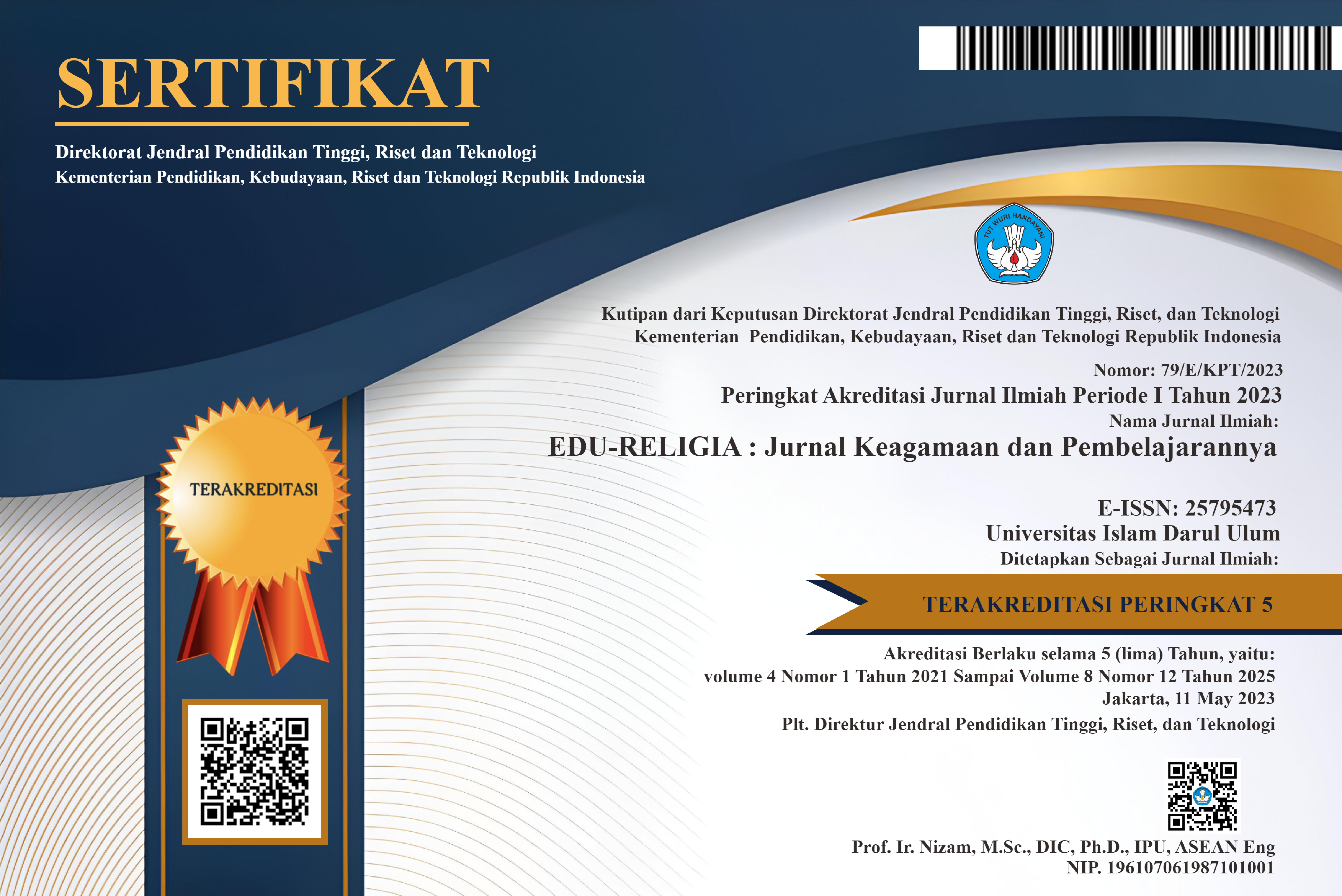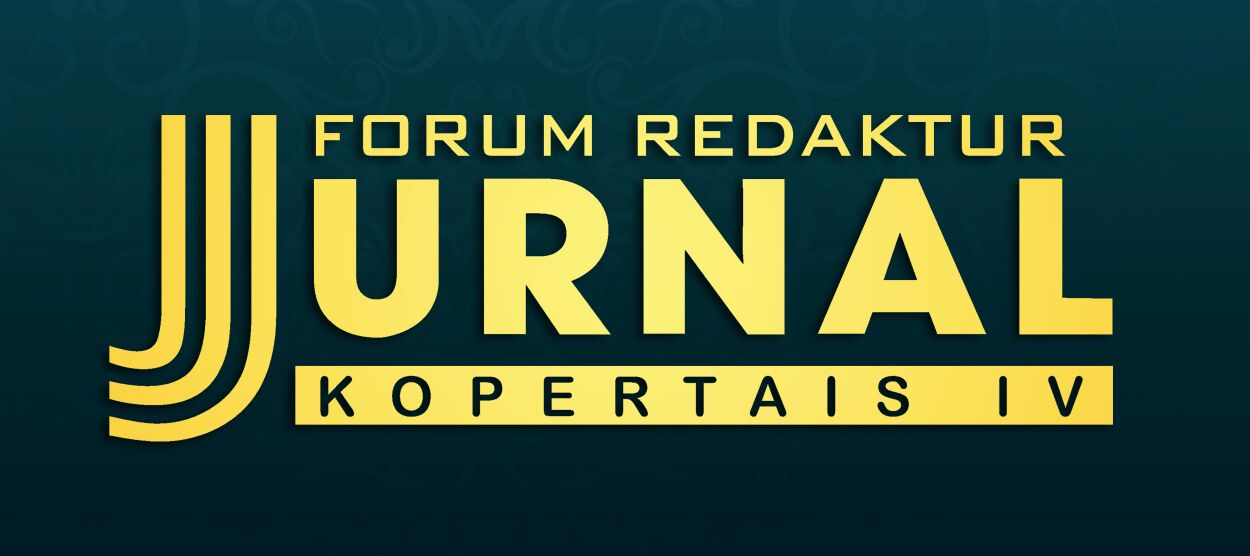Strengthening the values of Islamic education for students with a more modern character at the Tebuireng Jombang Islamic Boarding School
Abstract
Reality Facts at the Tebuireng Jombang Islamic Boarding School. In an effort to educate the character of students who are more modern, the Tebuireng Jombang Islamic boarding school has prepared a model which becomes a reference or approach in implementing existing character education. Implementing education with a place to live for students. Through this system, it is very easy for students to be coached and educated by Islamic boarding school caregivers, ustadz and supervisors by carrying out all institutional activities, both formal and non-formal. Guidance is by enforcing discipline through the existence of rules that students must follow, such as discipline in worship, discipline in dressing. , discipline, getting students used to participating in activities in the boarding school through various activities starting from the implementation of worship (congregational prayer, sunnah prayer, Monday and Thursday fasting, joint prayer, recitation of the sorogan yellow book, bandongan tadarrus Al-Qur'an , seminars, halaqoh, jamiyah Diba promises and organizational activities) as well as carrying out other routine boarding activities, such as sports, eating together, studying together, and sleeping together. Apart from carrying out positive activities, this activity also aims to increase the value of ukhuwah Islamiyah/brotherhood among fellow students in Islamic boarding schools.
Key Word: Islamic boarding school values, Islamic boarding school characters and Modern
Downloads

This work is licensed under a Creative Commons Attribution-ShareAlike 4.0 International License.







